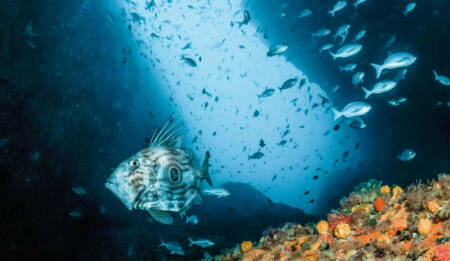Huataukina o hapū e! Enabling kaitiaki to better manage Whareponga and Waipiro Bays
This project is providing a unique opportunity for hapū-led research to support kaitiaki in better managing their rohe moana, build hapū capacity and capability, and give meaningful effect to the principles of the Ngā Rohe Moana o Ngā Hapū o Ngāti Porou Act 2019 for two hapū rohe moana case studies.

Background
“Huataukina” is a metaphor for the challenge facing kaitiaki and marine managers around Aotearoa New Zealand. Huataukina once symbolised an abundance of taonga species and a thriving community, but now heralds a biodiversity tipping point and the quest for kaitiaki to restore balance and the prosperity of their hapū and iwi.
This project is part of the New Zealand government’s Sustainable Seas National Science Challenge / Ko ngā moana whakauka.
Project details
This three-year programme is anchored in Whareponga and Waipiro Bays on the East Coast of New Zealand’s North Island.
The project team is holding a series of wānanga / meetings with hapū to co-develop tools and frameworks specific to the bays. This includes a database of knowledge, a dive survey report, a Mauri Compass for the marine environment, a state-of-the-environment report, and decision-making and policy frameworks.
Mauri concerns life force or essence. The Mauri Compass is both an assessment tool and a framework for restoring the mauri of any ocean, river or lake.
What they hope to achieve
The team plans to unlock the potential of the Ngā Rohe Moana o Ngā Hapū o Ngāti Porou Act 2019, mātauranga Māori and western science to give effect to the practice of kaitiakitanga over ngā rohe moana.
They intend to create mātauranga-a-hapū frameworks, processes and tools that will enable kaitiaki and other decision-makers to protect and manage ngā rohe moana.
They aim to build whānau and hapū capability to actively participate in decision-making and management of ngā rohe moana.
They want to develop understanding and guidance relevant to the application of a whānau, hapū, iwi and mātauranga Māori-based approach to ecosystem-based management (EBM) in the two hapū rohe moana case studies.

Resource



